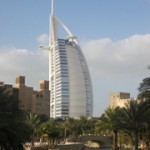The Arabic Business Opportunity


 The Middle East is an area that carries many stereotypes and myths. Before doing business in the Middle East it is imperative to learn about areas such as business culture, business etiquette, meeting protocol, and negotiation techniques. Through such knowledge, stereotypes are broken and barriers to communication reduced.
The Middle East is an area that carries many stereotypes and myths. Before doing business in the Middle East it is imperative to learn about areas such as business culture, business etiquette, meeting protocol, and negotiation techniques. Through such knowledge, stereotypes are broken and barriers to communication reduced.
When doing business in the Middle East, it is wise to bear in mind the great diversity within the region. However, a common religion, language, and culture make the highlighting of general traits and features for the region valid.
Dubai has emerged as a leading regional commercial hub with state-of-art infrastructure and a world-class business environment. It has now become the logical place to do business in the Middle East, providing investors with a unique and comprehensive value added platform.
With its strategic location, tax-free living and consistently strong economic outlook, Dubai is the ideal base for multinationals targeting markets in Central Asia, the Middle East, Africa, the Asian Subcontinent and the Eastern Mediterranean. These regions have a population of over 2 billion people and a combined GDP of US$ 6.7 trillion.
Accessible through its ultra modern airport, that offers connections to over 140 destinations, Dubai is also a thriving tourist destination and attracts a large number of skilled professionals. Its robust economic cluster of technology, media, finance and healthcare hubs makes Dubai a viable and attractive proposition for any business.
The Arabic business opportunity
It’s not just there for the taking, of course. Consider the logistics challenges of this vast region. Even in the affluent GCC (Gulf Cooperative Countries of the United Arab Emirates, Saudi Arabia, Qatar, Kuwait, Bahrain and Oman) distribution systems and retail chains are still modernizing. Managing supply chains is testing. Finding, training and retaining good staff is an ongoing problem. Arabic product quality is coming under increasing scrutiny, both domestically and abroad, and some business practices remain questionable by international standards. The top Five Middle East trading countries ranked in the top 50 (out of 178) on the 2010 Transparency International Corruption Perception Index.
Much has been written about the importance of business contacts and good relationships with national and local government officials. The clichés about the importance of government and business connections are true – although wasfa is now just one of the elements of success, which also include technology, management best practices, powerful branding and marketing, and managing relationships with communities and the media.
Thanks to our Japanese PR associates, TrainTracks, for facilitating this guest blog from Dubai-based Nettresults.
Check out this excellent Nettresults video, with Top 10 Tips for Doing Business in the Middle East.




